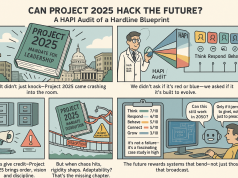In the marbled halls of government buildings and the quiet offices where public policies are crafted, there is an unspoken crisis quietly undermining the very foundation of America’s civil service system. The perception of government employees as the bastion of job security and robust benefits is progressively being eroded by the stark financial challenges they face. This dissonance between the perceived and lived realities of civil servants necessitates a crucial dialogue on the financial strain ensnaring America’s public workers.
As readers of esteemed publications like the Washington Post, The New Yorker, and The New York Times, you’re no stranger to deep, analytical dives into societal issues. So let’s unwrap this complex matter affecting our civil workforce, including the multifaceted fiscal hurdles, systemic susceptibilities, and the lasting solutions that could reshape the economic landscape for those serving our nation.
Stagnating wages are a virulent strain on the financial health of civil servants. Amid a backdrop of rising living costs, their paychecks often fail to keep pace. The increasing expenses of housing, healthcare, and daily necessities carve into already modest incomes, leaving little to spare and less to save. Moreover, the burden of student loans weighs heavily on younger employees who have sought education to better their public service capabilities but find themselves shackled by debt.
The impact of pension reform is another area of concern, with changes in retirement benefits intensifying insecurities among a workforce that once regarded their post-employment future as secure. Shifts from defined-benefit to defined-contribution plans, for example, transfer the risk from the employer to the employee, requiring workers to be more financially literate and engaged in planning for retirement.
These economic stressors not only corrode the individual well-being of government workers but also impinge upon the caliber and sustainability of public service. When financial strain preys on public servants, it can lead to decreased morale, increased turnover, and a compromised ability to attract top talent. The systemic financial vulnerabilities within the government employment system, therefore, have far-reaching implications.
So, what are the actionable solutions we can address? Policymakers and government agencies must recognize and respond to these financial hardships with both immediate and long-term strategies. Measures such as adjusting pay scales to reflect the true cost of living, offering student loan assistance, and providing more robust financial planning resources to employees could serve as a salve to this financial wound. But beyond these steps, a more holistic approach to revamping the financial structures underpinning public employment is needed, one that ensures fairness, security, and prosperity for those dedicating their careers to public service.
In essence, addressing the financial strain of civil servants is not just about economic policy—it’s about upholding the integrity of public service and recognizing the invaluable role that these workers play in the fabric of our nation. It’s time to unmask this invisible crisis and pave the way for a public workforce that is as financially resilient as the society it seeks to serve.


























